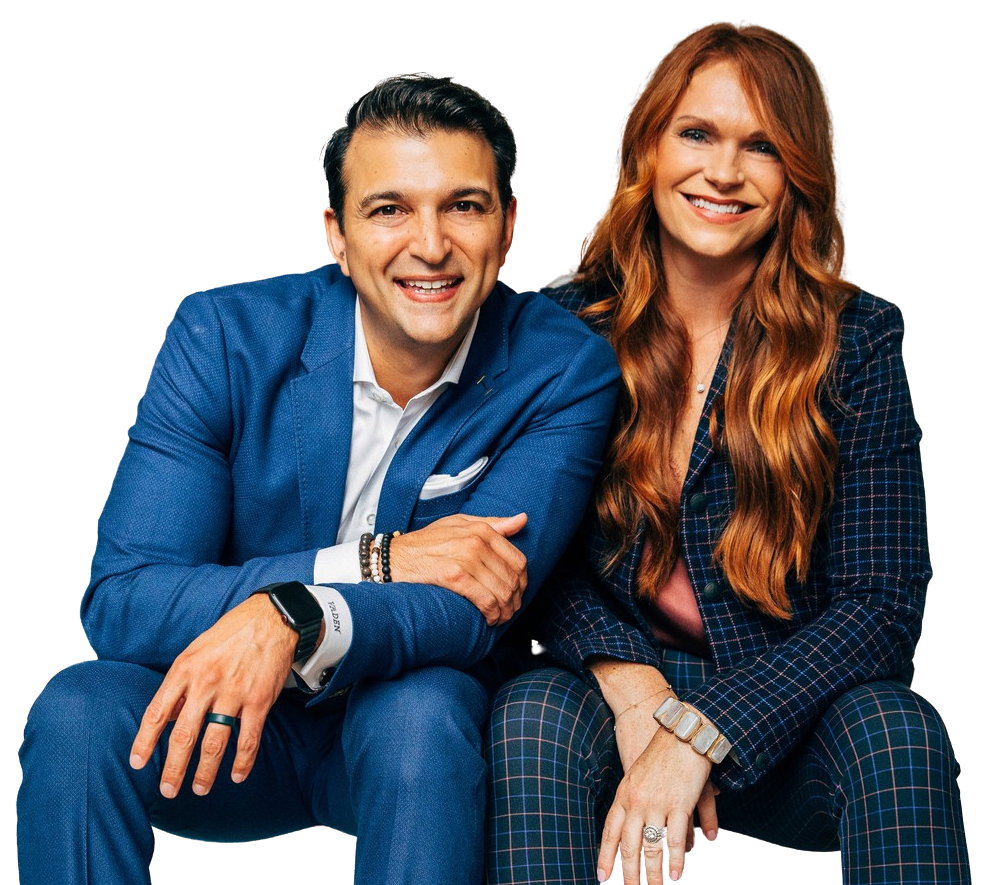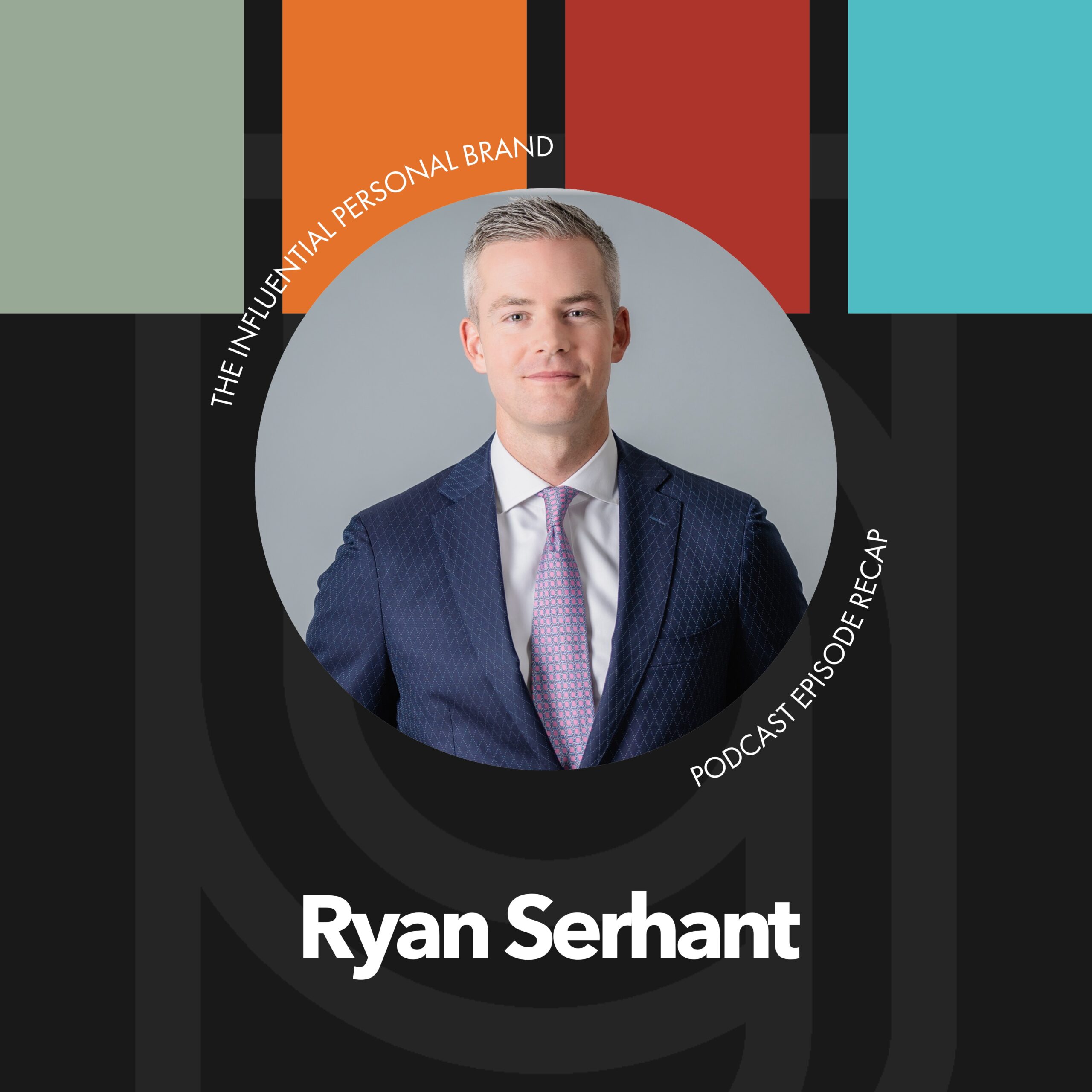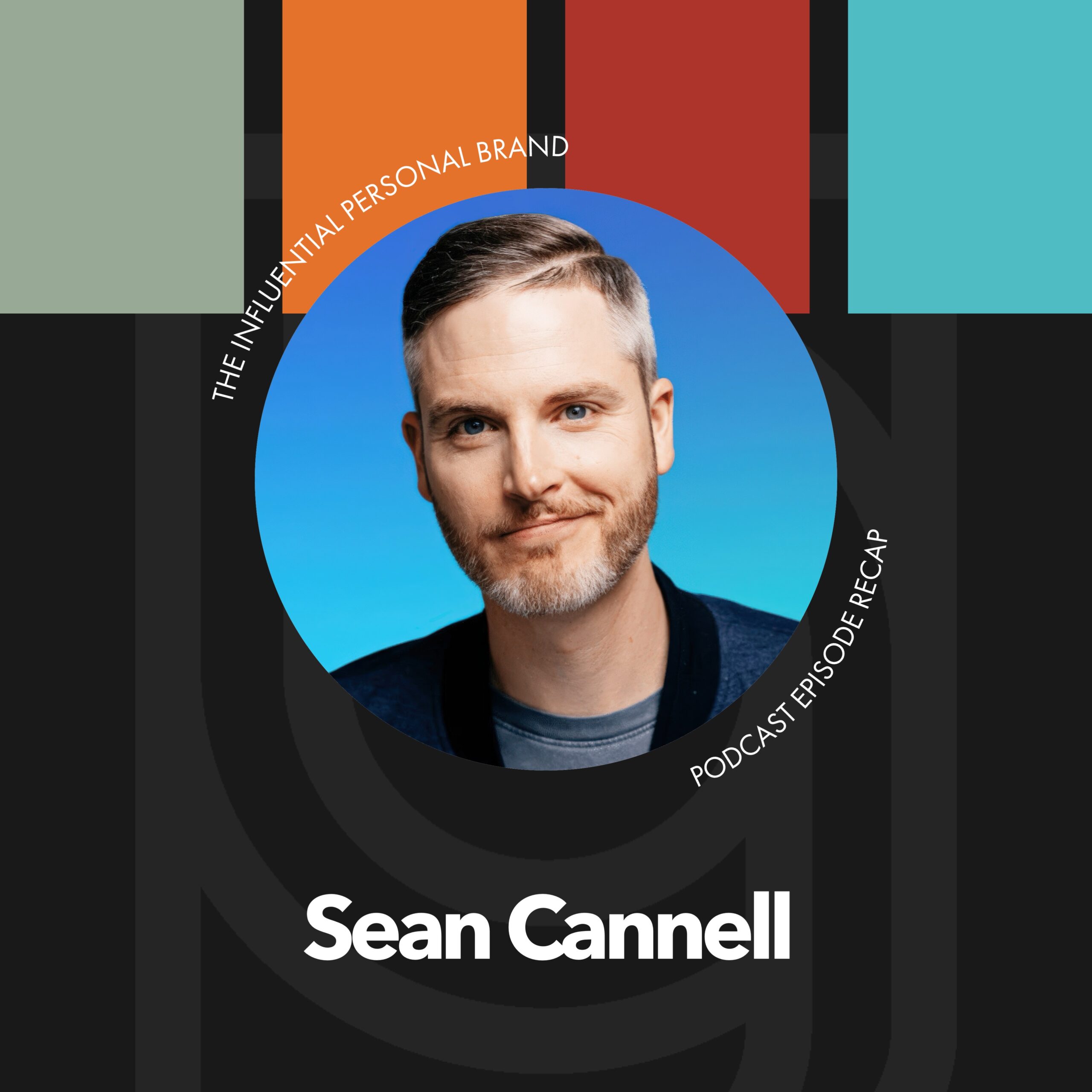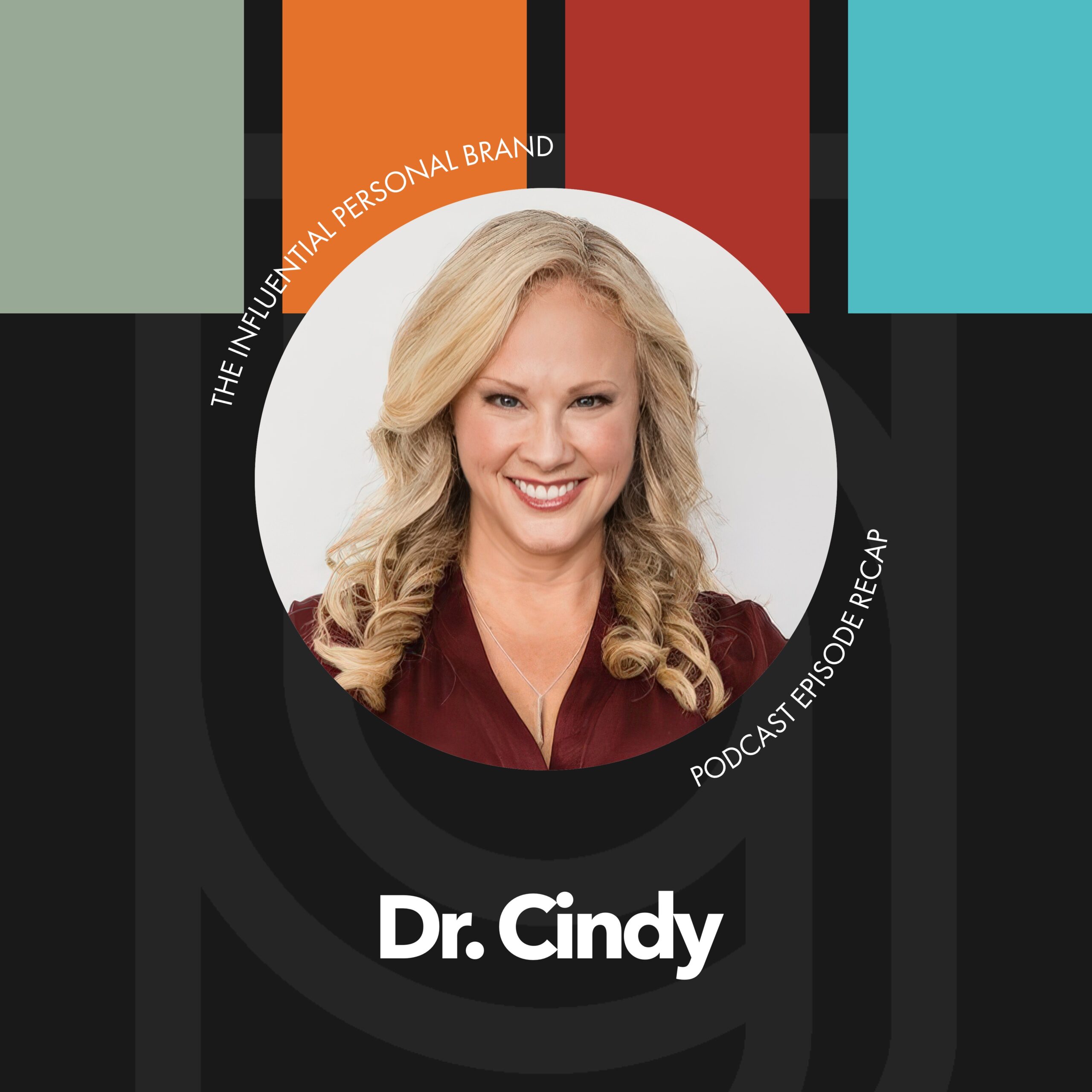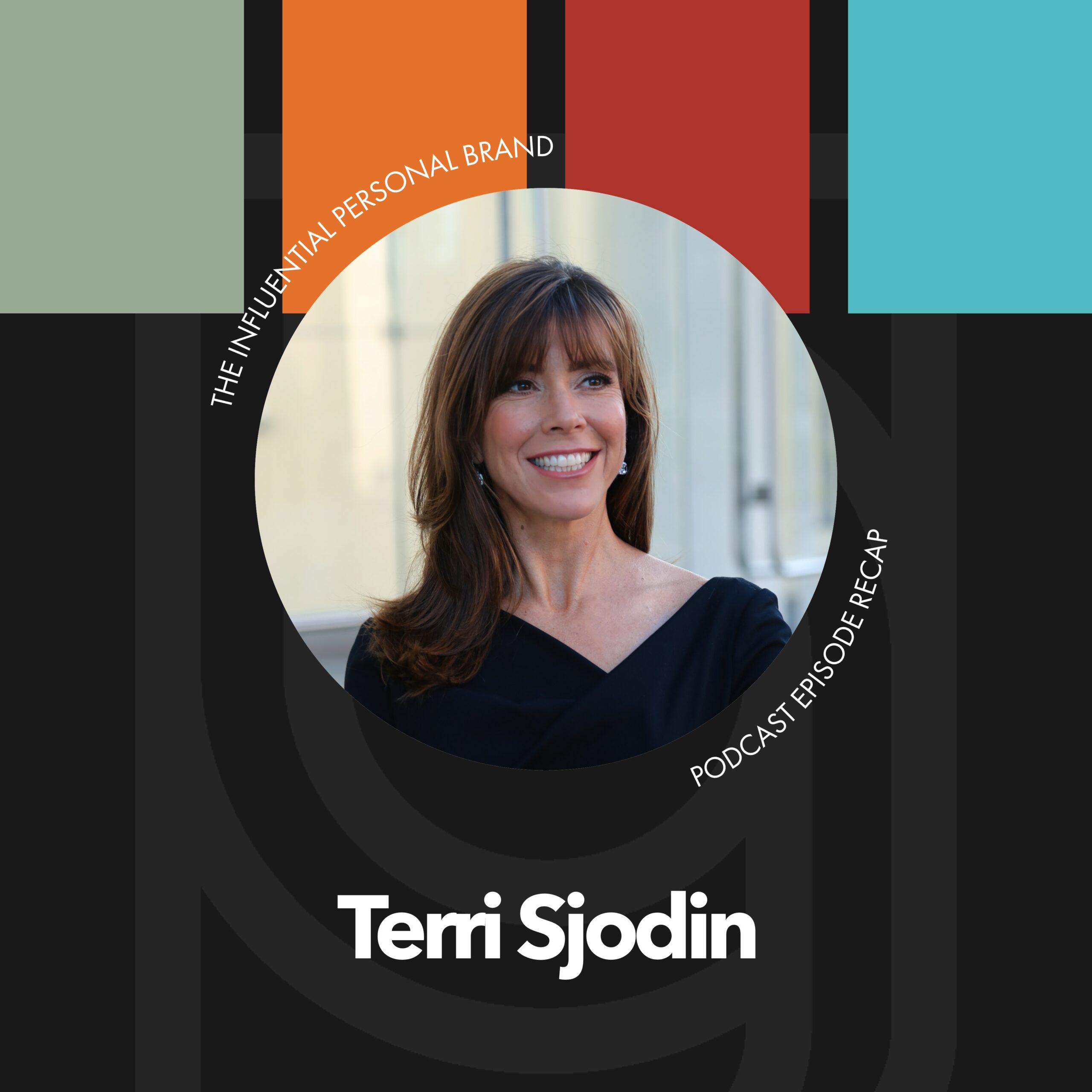RV (00:02):
Well, I absolutely adored my conversation with Carrie Nieuwhof, and as often happens, he inspired me. Some of the things that he was talking about, I guess, you know, set me on a path of thinking about things that are important for, for my life. And, you know, even though we were sort of talking about how pastors can build their personal brand, it really, it was him sharing a lot about how his speaking career got started. And so if you’re interested in, in hearing that story about, you know, how did he build his speaking career? And, and, and how did he, how did he start from scratch? I think that’s super powerful. And so I was thinking this was related to that. And then the more I kept processing on it, I realized no, what it reminded me of are three hidden traits of successful people. And so I’m gonna walk you through, through these because I think these, these are, when I say they’re hidden traits, I mean, these are three things that make successful people successful that I don’t know that we hear enough about, or that we maybe we take for granted, or we’re not sure that they, they are really there.
RV (01:11):
And so as I was listening to Carrie’s story and also thinking back on my own life, and then thinking about so many of our successful clients and where also where we’re going, these, these three things really jumped out to me to go, you know, if you want to be a successful person, these are three things that I think you really need to commit to. And you need to ask yourself on the front end, am I willing to commit to these things? Because if you’re not, no matter how skilled you are, no matter how talented you are, no how much, no matter how much head knowledge you have, I think these are the things that are, are more invisible, they’re more hidden, that really hold people back from success. And so the first one is to crush it where you are at. And this is one we definitely don’t hear enough about when it comes to success.
RV (02:04):
Everybody talks about like, Hey, start the side hustle. Hey, do the next thing. Hey, you, you know, figure out what your vision is. And all of those things are good. And I think too many times we overlook the importance of being successful, not just successful, but being very successful at the thing that is right in front of us. Meaning the best way to set yourself up for success in the next thing is to be successful doing the thing that you’re doing right now. Let me say that again. The best way to set yourself up for being successful at the next thing is to be successful at doing the thing that you’re doing right now. And I think that many of us embrace this lie. We live in this fantasy land
RV (02:59):
That once I’m doing the thing I want to do, then I will suddenly make the sacrifices it takes to be successful. Once it’s my business, then I would, then I would pay the price, then I would put in the work. Or once, once we get past, you know, once I get this certification or that certification or, or once I got a new boss, or once I got promoted, or once I made this much money or, or once I had kids, or once I didn’t have kids, you know, like once they were growing and out of the house, like we are so often convince ourselves that we will really turn it on. We’ll really pay the price, we’ll really put in the work. Like we’ll really show up and do what it takes to be successful when the external circumstances change. And that is a lie.
RV (03:49):
I mean, if you can’t turn it on now, if you can’t pay the price, if you can’t make a sacrifice, if you can’t endure some short-term pain to be successful at the thing you’re doing now, why do you suddenly think you would be willing to in a different situation? And I guess there’s times where maybe that is true, right? Where you go, man, I hate my job, I hate my boss. I’m not given this company one lick of more effort. You know, I’m gonna work just hard enough not to get fired. And maybe that is true, that if it was your own thing, maybe, maybe you would. But I think we overestimate how easy that is. The reality is that, like Vince Lombardi said, winning is a habit. Being a winner is something in your character, right? People who are winners win at everything. Like they win at all the things they pursue, not just winning on the scoreboard, are not just beating other people, but, but creating excellence, doing excellent work, showing up powerfully, serving people, making a difference, making an impact, right?
RV (04:53):
Making contributions to the teams they are a part of. That’s not something you do once in a while. That is not something you do when the conditions are perfect. That is a character trait that you have to decide and commit to embracing that I am a winner because I’m always a winner and I’m gonna succeed because I, I, that’s what I do. I succeed. We’re gonna be excellent cuz that’s what we do around here. We, we make excellent things and yeah, it’s hard at times. Yeah, it’s inconvenient. Yeah, it’s painful. But that is the price of admission to being excellent. That is the price of admission for being great. That’s the price of admission for doing anything that matters. And so if you wanna be successful at your next thing, don’t wait to start developing the success habits until you’re doing those things. Start developing them now.
RV (05:47):
And in my life, you know, there, there’s been a couple times where my life direction has abruptly changed very and, and, and, and a couple times very unexpectedly. And I think the reason why we were able to pivot so quickly to the next thing was because we had done everything in our power to make the current thing succeed. And it’s sort of like, you know, it’s like jumping from the top of one mountain to the top of another mountain versus having like to be on the, if you’re on the, if you’re, if you’re halfway up a mountain or you’re on the bottom of a mountain, you have to like go down that mountain and then go up the bottom of the next mountain. But if you’re on the top of a mountain, you just jump from the top of one mountain to the top of the next, to the top of the next, you know, maybe not from top to top, but you know, near the top.
RV (06:31):
And then you climb back up to the top. And this is what successful people do, right? They’re successful in everything. So don’t convince yourself, don’t lie to yourself that, oh, I would really be successful, you know, if I had a different this or that or whatever. Maybe that’s true. But, but the reality is that most of success comes down to you making that decision to be successful regardless of your circumstances. So do that now. Crush it where you are at. And that is concept right out of take the stairs, you know, from years and years ago. Hasn’t changed. Second thing, second thing that I don’t think people talk enough about when it comes to being successful, specifically at generating revenue, right? So when specifically at, you know, building your personal brand or selling your course or selling your keynote or getting a promotion or, you know, let’s, let’s just say sales in general, generating revenue.
RV (07:30):
I think what we don’t hear enough about is that when somebody succeeds at something, a lot of times, like most of the time it’s because they have banked up all of this trust first, right? So when, and I’ll, I’ll I’ll use this. I think this is a great example. You know, we, we were fortunate to, to be a, a very significant part of Ed Millet’s book launch in 2022. And we made a major contribution. We did a lot, we worked very closely with Ed, and we brought the best that we had to offer in terms of strategy and relationships and you know, we did what we did. But, you know, and we helped Ed pre-sell 117,000 copies of his book. You know, and just recently we, we, we helped Louis House and Amy Porterfield both and, and they both became New York Times bestsellers.
RV (08:24):
All in all, we’ve now helped 13 different clients become New York Times, wall Street Journal, U s USA Today bestsellers. But with Ed, you know, he pre-sold 117,000 copies of his book. Did we have a lot to do with it? Sure, we had a lot, we had something to do with it, right? We, we helped Ed, we helped Ed. The reality is we get far more credit than we deserve. The reality is Ed had banked up so much trust with his audience, so much reputation, right? Did some of our stuff help? I, I hope so. I like to think so. Ed is very gracious in saying that it did. But the reality is that we taught Ed the same thing. We teach all of our clients, right? It wasn’t like we gave him some secret that we didn’t give anybody else the difference in his results, right?
RV (09:11):
The difference in what Ed, ed Mylet experience was not because we did a better job with him or because we taught him something, we don’t teach everybody else. It’s, it’s case in point that what happened was it was his trust that was banked with his audience before he asked them to buy. Trust must always take place before there’s a transaction. Trust must take place before there’s a transaction. When Ed did his book launch, he had years and years of trust banked up. Now we showed up, we were lucky enough to get introduced to him. We were one part of a team of people that were all working together to support him. And we might have helped him maybe, you know, optimize efficiently the, the, the quote unquote extraction of that trust in the form of book sales. But he was the one that banked the trust.
RV (09:58):
And so when we get extraordinary results with clients, you know, I don’t think we could take, like, we cannot take all the credit for it by any means. Even when they follow our formulas, even when they use our ex exact stuff. And similarly, when clients don’t succeed, it’s not because of us, it’s because of them, right? We know our formulas work. They’ve worked for us. They’re working for lots of other clients, the biggest personal brands in the world, all the way down to intermediate and novice people who are just starting out getting extraordinary results. We know what we do works. The difference is you, the difference is how much are you willing? How hard are you willing to work? And how much trust have you banked with your audience? Trust must take place before there’s a transaction. And too many people want to come out and just sell right away.
RV (10:45):
Too many people want to come out and just like, oh, I’m gonna launch something and go, I just wanna sell to a bunch of random strangers on the internet. Well, it’s not bad to do that. It’s not necessarily wrong to do that. But I think the reason that people struggle to succeed right away is because they think, oh, there’s some technique that I need to develop. There is, there’s some strategy. And if it didn’t work, it’s cuz oh, I got bad advice from, you know, this person or that person, or brand builders group, or this course didn’t teach me. And the reality is, it’s because you didn’t have enough trust banked up with your audience. You have to build trust before people are willing to buy. You have to build trust with people. You have to add value, you have to give first. You have to help them.
RV (11:27):
You have to pour into them. And so if your launch failed, it doesn’t mean you failed. It doesn’t mean you got horrible advice. It doesn’t mean that the thing that you’re doing is bad. It doesn’t mean that people won’t ever buy it. It probably means more often. It means that you’re just too early, meaning you are trying to extract revenue before you have deposited trust. So I don’t, don’t think we hear enough about that. And I think, you know, I think people like us, you know, wanna take credit because we do. We, we wanna, we wanna have a part of people’s success. We work really, really hard for it. And you know, sometimes you’re hard on yourself when you don’t succeed or you’re hard on the people around you. And the, the fact of the matter is, a lot of success has to do with trust.
RV (12:13):
And trust comes from adding value to people in your life that they see you, they learn from you, they know you. You’re giving to them, you’re teaching them. And that’s why our entire content marketing strategy, right? Everything we teach, which, you know, can get very sophisticated, but it all boils down to like our entire content marketing strategy is this simple, teach everything you know, for free, but in small bite size chunks and all random miscellaneous order. That’s how we do our whole, our whole content strategy for podcasting, for YouTube, for social media, right? Like, I mean, we’re teaching everything we know for free, but in small bite size chunks, in all random order because we, there’s two things we believe. First of all, we believe that people don’t pay for information. People pay for application. People don’t pay for information, they pay for organization and they pay for application.
RV (13:06):
So even if you teach everything, you know, what they’re gonna hire you to do is they’re not gonna hire you for the knowledge. They’re gonna help, they’re gonna hire you to help them apply the knowledge to their own life and their own business and their own situation. But the second reason why we do that is because we’re automating trust. What are we doing here on this podcast? We’re automating trust. That’s what we’re trying to do. What are we doing on my blog? We’re, you know, you rory vaden blog.com. I’ve, I mean, I feel like I’ve given away a master’s degree in free content on my blog, like for free. Like if you actually sat and went and read all the hundreds of articles, it’s like equivalent to a master’s degree, like probably better in some ways in terms of the ability to help you generate more income for your life immediately.
RV (13:52):
And it’s all there for free because we’re automating trust. We want, we want to add value to people before we need something, right? We we’re, you know, we don’t particularly need anything. Now, what we do hope you do at some point is you, as you go to free brand call.com/podcast and you say, you know what, I like these guys. I like what they’re about. I like their style, I like their guests, I like their information, I like their knowledge, and I think they could help me take my small business to the next level. I think they could help me grow my reach, grow my revenue, increase my sales build my personal brand, build my audience, build my impact, and I wanna talk to them, right? So that’s why we do the podcast for free. That’s why we work so hard at it. We’re automating trust.
RV (14:35):
That’s what we’re trying to do. You can do the same thing. That’s what we’re doing on social automating trust. Teach everything you know, for free, but in one small bite size chunk in an all random miscellaneous order, all right? That accounts for a lot of your success, like more than you realize. So if your last launch failed, give yourself a break, right? Like, if your revenue’s not climbing as fast as you want it, welcome to the club, right? If your audience isn’t taken off and you’re not getting the kind of reach that you want, welcome to the club, right? That doesn’t mean you’re doing something wrong, it means you’re just early on the journey. That’s it. And that leads me to the third thing. The third thing that I don’t think we hear enough about when it comes to success. I mean, you do hear about this some, but I don’t think that we index it enough.
RV (15:28):
I don’t think we appropriately wait this enough. And that is simply that you have to make a decision to stick with it most of succeeding in the personal brand space. Okay? So if you wanna become a, a bestselling author, a world renowned speaker, if you wanna become a world renowned coach, a high paid consultant, if you wanna just make it in this space, in this business, a huge part. Like most of it, probably 80% of it is just sticking around . Like, it’s just not quitting. I mean, most people just, they just quit. They quit after a f a few months, you know, a bunch of people quit after a few weeks, you know, and then a whole bunch of people will quit after a few months where they don’t see traction. You know, there’ll be some smaller group that they’ll make it, they’ll make it two years, and then it didn’t take off.
RV (16:22):
And so they give up, or you know, sometimes they have to, right? Something changes and they’re, they run out of, you know, money or somebody gets hurt in their life, they gotta take care of ’em or you know, whatever, whatever. Like, there’s life situation, but they, but they of ultimately, they just, they, they quit. They, they, because either they choose to or they have to, they stop pursuing the dream. And I think 80% of achieving a dream is just not giving up on it. Like 80% of you achieving your wildest dream is just not giving up on it. It’s just pursuing it is sticking with it. And, and the reason why I think this matters, especially for small business owners, especially for entrepreneurs and especially for personal brands, but I think this, I would round this out and say that this applies to all small business owners, right?
RV (17:05):
Because this is, here’s what it means to be an entrepreneur. Like, ultimately people think what are, what’s the criteria that it takes to be a successful entrepreneur? We think, oh, we gotta have a great product, or we gotta be good at sales, or we gotta have the gift of gab. We gotta be good with people, or we gotta have, you know, good time management, or we have to have, you know, good systems or good at marketing, or blah, blah, blah, blah, blah. None of that. I mean, all of those things help. None of them are the predominant criteria for a success. Successful entrepreneur. You wanna know what the number one most predominant criteria for a successful entrepreneur is. I’ll tell you, I’m a hundred percent convicted that this is the number one most important criteria for being a successful entrepreneur.
RV (17:50):
You have to be willing to get kicked in the face over and over and over every day and keep coming back for more. That’s it. Like, you have to get punched, you have to get kicked, you have to get hit, you have to get beat down and be willing to come back for more. If you wanna be a successful entrepreneur. That’s the job. That’s the job. It’s not secret strategies, it’s not mentorship, it’s not this personal development book, that coaching program, the perfect product, customer experience sales. It is that it is going, what is your appetite? What is, what is your threshold for getting kicked in the face? Forgetting, beat down for having problem after problem, rejection after rejection, set back after setback in your personal life, your professional life, people quitting on you, losing clients, thought you had the gig and you didn’t getting zing with a, a tax bill from the government.
RV (18:46):
You weren’t expecting the product breaking down that you thought was perfect. The marketing thing busted. Having people run off with your money. Like it’s, it’s, and then it’s, it’s managing all that, right? While in your personal life, you have chaos going on. This is the story of our life, like in the last few weeks, right? We’ve had unexpected surgeries, we have kids throwing up in the middle of the night, someone drove into our fence, right? On accident, we, we knocked over our fence. We’ve had people bump into the car. We have had gas leaks in our house where we had to tear open the walls. We have so many things, kids riding on the walls with markers like the, the kids’ teachers getting sick and now the kids are home. Like all of that is normal. That’s the job, right? So you go, can you manage all of that simultaneously while getting kicked in the face simultaneously, while trying to like, make an impact in the world? That is what it takes to succeed as an entrepreneur. What is your threshold for getting beat up? What is your threshold for, for getting hit? How hard can you get hit and keep coming back for more? How many times can you be told no? How many times can someone let you down? How many times can you be taken advantage of? H how many times do you have to fail? But w and but you’re willing to iterate and keep coming back. That is what it takes.
RV (20:16):
That’s what it takes. So if you’re going, if you’re having a hard day, if you’re having a hard day, don’t, I, I feel for you, right? I don’t mean to be too hard on you. I know it’s freaking hard. It’s hard. And if you have kids, you have young kids, it’s freaking hard. And if you have a team and you’re managing people and you’re dealing with the gossip and the relationships and their personal life and their, you know, traveling in this and what, and they let somebody down and they didn’t show up, right? I, it’s hard. And I know you don’t have the, you don’t have as much money to hire the vendors and you hire and then you hire a vendor and they let you down or they don’t do a good job or they ghost on you. We had a vendor ghost on us recently.
RV (21:02):
$6,000. We paid them. They disappeared. $6,000 gone disappeared. I know it’s hard, but that’s the job. Like, that’s the price of admission for success in this business, in this game of entrepreneurship, of being a small business owner, of being a world changer. Do you think things were easy for Martin Luther King Jr? Do you think things were easy for Mother Teresa? Like, do you think things are easy for the people who change the world? Like if you wanna change the world, that’s the job. You wanna own your own business, that’s the job you wanna make. Unlimited income, that’s the job you want freedom. That’s the job. You wanna be well-known. That’s the job. You wanna make more money than anyone in your family has ever made. That is the job. What is your appetite for getting kicked in the face?
RV (22:00):
I’m not saying I like it, I’m just saying that’s the job. So if today’s a hard day, welcome to the club. You’re on the right track, right? These are the things we don’t hear enough about, but they are the truth. In order for you to succeed at launching your next thing, you need to crush it. Where you crush it with the thing you’re doing now, crush it where you’re at. In order to succeed and make money and generate sales, you have to bank trust first. Trust must take place before a transaction. And if you’re gonna succeed as an entrepreneur, as a small business owner, as a personal brand, or as anything else, you just gotta increase your threshold for getting kicked in the face and keep coming back for more because that’s what it takes. But if you’re here listening now, if you’re still listening by this point, if you found your way here to us and you found your way to this episode and you’ve found your way to this moment and you’re still here, here’s what I believe.
RV (23:17):
I believe you have what it takes. I believe you have what it takes. I believe that there’s a calling on your life to do something so big in the world that that calling will outweigh the, the, the pain that you have to go through. That, that long-term calling that purpose for your life is to make such a positive impact for other people that you will be willing to endure the pain. So you’re on the right track. It’s okay to have hard days. Just realize that’s the job. Keep going and keep coming back for more. We’ll catch you next time on the Influential Personal Brand podcast.



